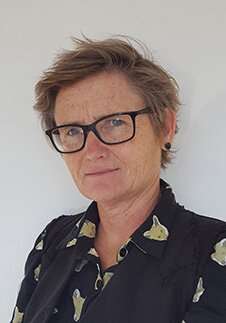Busting barriers to dental care—Pasifika adolescents hold the answers

Sitting at the forefront of inequalities in oral health care, Pasifika youth are well placed to provide solutions to the problem, a unique University of Otago study has found.
Lead author Dr. Lee Smith, of Otago's Faculty of Dentistry, says despite dental care being free for all adolescents under the age of 18, Pasifika adolescents living in New Zealand are less likely than their peers of other ethnicities to access it.
Potential barriers to access include a lack of arranged appointments, unwelcoming clinic environments, and the financial hardship some Pasifika families experience.
"Interventions aimed at addressing the disparities in access, and outcomes experienced, are needed," she says.
In the study, published in the New Zealand Dental Journal, researchers recruited Pasifika adolescents to interview groups of their peers about their attitudes, understandings and experiences of oral health care.
"Few dental studies have included adolescent voices, and therefore the study is somewhat unique in dentistry.
"Rather than simply re-describing the inequities in oral health access and outcomes, the participants' suggestions have the potential to overcome them," Dr. Smith says.
Participants provided suggestions to overcome these issues, some of them simple, others which would require significant societal shifts.
Ideas included reducing the cost of oral health care and products; making access to the clinic easier, including have transport arranged for them or having a dentist visit their school; making the clinical environment more welcoming and youth-friendly (this could be as simple as changing the radio station); and having more approachable, younger and Pasifika/Māori oral health professionals.
There were also recommendations about increasing the importance placed on oral health in Pasifika families and communities through education in Pasifika languages, including through the Church, visual, and social media.
"Policy makers should look at implementing at least some of these suggestions for change, or at least treating them as a conversation starter on how to address the inequities in Pasifika adolescents' oral health care access."
- Dr. Smith offers the following basic advice about oral health care:
- Brush twice daily with a fluoridated toothpaste – including gums and tongue. Spit, rather than rinse, after brushing to keep fluoride on your teeth
- Once a day clean between teeth using floss or interdental brushes or sticks.
- Visit a dentist regularly so any problems can be caught early and subsequent costly treatments can be avoided
- Keep sugars to meal times and limit high sugar content food and drinks.
- Do not smoke
- For those on low incomes, dental care and treatment is available through the University of Otago Dental School or, alternatively, talk with your dentist about paying in instalments. Work and Income also has a small grant for emergency or necessary dental treatment
More information:
L.A. Smith et al. Pasifika adolescents' recommendations for increasing access to oral health care. New Zealand Dental Journal
www.researchgate.net/publicati … Pasifika_adolescents'_recommendations_for_increasing_access_to_oral_health_care



















